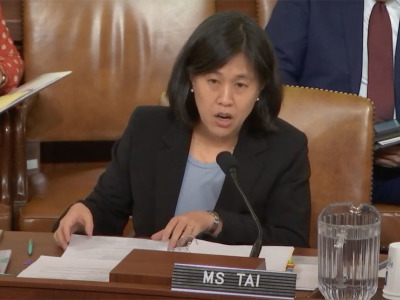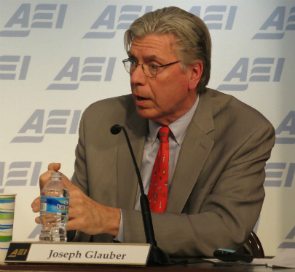The U.S. was one of nine countries critical of the European Union last year when it unveiled a plan to tax imports based on their carbon footprint, but that was under the Trump administration. Now the Biden administration is signaling a stronger kinship to the EU’s push to reduce greenhouse gas emissions on an international scale.
And U.S. farmers and ranchers will play a major role, according to U.S. Trade Representative Katherine Tai, who stressed recently that “climate-friendly and sustainable agricultural production is essential to meeting our climate and sustainability goals. Our farmers and ranchers can lead the world with innovative carbon conservation practices. (Agriculture Secretary Tom) Vilsack has proposed ambitious ideas, including expanding the use of cover crops and making carbon capture a mainstream conservation practice. I am eager to work with him to help make these practices the new global standard.”
Speaking last week to the Center for American Progress, a liberal think tank, Tai said U.S. producers need to lead the way on environmentally conscious trade, but they should not be disadvantaged in the global arena by foreign suppliers that provide the cheapest goods or commodities at the expense of the environment and global warming.
That kind of competition — what she calls “a race to the bottom” — needs to be done away with.
“The view that environmental issues are not an inherent part of trade ignores the reality that the existing rules of globalization incentivize downward pressure on environmental protection,” Tai said. “This puts countries with higher environmental standards at a competitive disadvantage … It doesn’t have to be this way.”

USTR Katherine Tai
One way to create an economic incentive for trading partners to decrease their environmental footprint is to tax their goods on the carbon intensity tied to them, says John Podesta, counselor to former President Barack Obama, chief of staff in the Clinton White House and founder of the Center for American Progress, or CAP.
“Deepening economic ties and tackling climate change are not mutually exclusive,” said Podesta, who introduced Tai at the event last week when she promised environmental protection will play a bigger role than ever in U.S. trade policy. “In fact, it’s the opposite. The benefits of global trade can serve as a powerful incentive for raising environmental standards and creating a sustainable, global economy.”
It would be reasonable for countries or trading alliances to erect carbon adjustment taxes on imports if farmers and ranchers there have to operate under strict and expensive environmental regulations, says Joe Glauber, senior fellow at the International Food Policy Research Institute and a former USDA chief economist.
The European Union is considering a carbon adjustment tax as it prepares to require its agricultural sector to slash greenhouse gas emissions under its European Green Deal; several of the largest farm groups there are supporting the proposed duties.
A carbon tax on grain imports would be necessary to protect domestic farmers, according to the Belgium-based European Corn Federation and the France-based General Association of Corn Producers.
The European Green Deal and its environmental requirements will be “a threat if the EU does not take into account the economic and sectoral effects of its carbon policy compared to those carried out by its international competitors,” the groups said in a recent joint statement. “The EU’s low carbon approach will indeed create differences between European and third-country production systems if the latter countries do not make the same efforts.”
Interested in more news on farm programs, trade and rural issues? Sign up for a four-week free trial to Agri-Pulse. You’ll receive our content - absolutely free - during the trial period.
While Tai is emphasizing that environmental protection and climate change will play greater roles in future free trade agreements, she also set her sights on the need for change at the World Trade Organization, where there are no rules to protect nations that invest in counteracting global warming.
“While countries can avail themselves of what amounts to an affirmative defense, that defense has proven difficult to invoke successfully,” Tai said. “This is part of the reason why, today, the WTO is considered by many as an institution that not only has no solutions to offer on environmental concerns but is part of the problem.”
But the WTO can also be part of the solution too, says Glauber, so long as nations do not use the guise of environmental protection to create new barriers to imports.
The most potent thing the WTO could do, he said, would be to harmonize standards.
“When one country puts in one set of standards and another country puts in another — that’s where the friction is going to come … and that’s where the WTO could help,” he said.
Joe Glauber
But it would be a major undertaking for an institution that has been unable to come to agreements on issues such as subsidies and market access for more than a decade.
In the meantime, U.S. leaders are saying it will ramp up its efforts to take a global leadership role in the fight against global warming and on protecting the environment.
“We must conserve the resources we do have — and work with our trading partners to do the same — to both mitigate and adapt to climate pressures,” said Tai. “My job is to bridge that chasm and push for trade reforms that translate into meaningful change in the lives of farmers, ranchers, factory workers, parents, children — not just in the United States, but around the world.”
For more news, go to www.Agri-Pulse.com.



